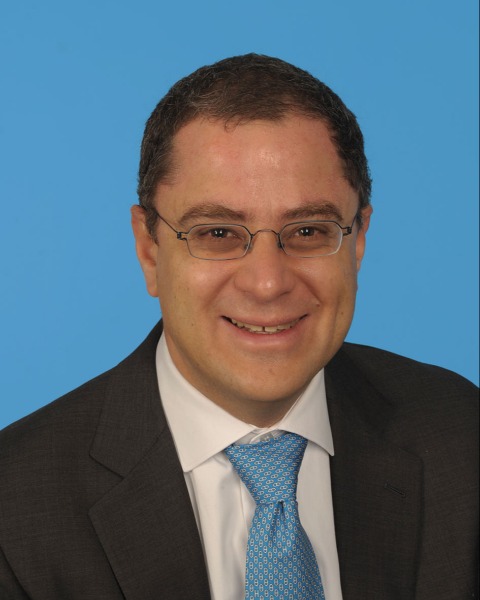HPB
CME
35: Genetic Heterogeneity of Intrahepatic Cholangiocarcinoma: Implications for Outcome

Yi Song, MD, MS (she/her/hers)
Clinical research fellow
Memorial Sloan Kettering Cancer Center
Brooklyn, New York, United StatesDisclosure(s): No financial relationships to disclose

Yi Song, MD, MS (she/her/hers)
Clinical research fellow
Memorial Sloan Kettering Cancer Center
Brooklyn, New York, United StatesDisclosure(s): No financial relationships to disclose
- TB
Thomas Boerner, MD, MS
Senior Research Scientist
Memorial Sloan Kettering Cancer Center, United StatesDisclosure information not submitted.
- ED
Esther Drill, DrPH
Principal Biostatistician
Memorial Sloan Kettering Cancer Center, United StatesDisclosure information not submitted.
- PS
Paul Shin, MD, PhD
Research Associate
Memorial Sloan Kettering Cancer Center, United StatesDisclosure information not submitted.
- AC
Andrea Cercek, MD
Associate Attending
Memorial Sloan Kettering Cancer Center, United StatesDisclosure information not submitted.
- NK
Nancy E. Kemeny, MD
Attending
Memorial Sloan Kettering Cancer Center, United StatesDisclosure information not submitted.

Ghassan Abou-Alfa, MD, MBA
Professor
Memorial Sloan Kettering Cancer Center
New York, New York, United StatesDisclosure information not submitted.
- CI
Christine Iacobuzio-Donahue, MD, PhD
Attending
Memorial Sloan Kettering Cancer Center, United StatesDisclosure information not submitted.
- NS
Nikolaus Schultz, PhD
Computational Oncologist
Memorial Sloan Kettering Cancer Center, United StatesDisclosure information not submitted.
- HW
Henry Walch, MS
Computational Biologist
Memorial Sloan Kettering Cancer Center, United StatesDisclosure information not submitted.
- CS
Carlie Sigel, MD
Associate Attending
Memorial Sloan Kettering Cancer Center, United StatesDisclosure information not submitted.
- TK
T. Peter Kingham, MD
Director of Global Cancer Disparities Initiatives
Hepatopancreatobiliary Service, Department of Surgery, Memorial Sloan Kettering Cancer Center, United StatesDisclosure information not submitted.
- KS
Kevin C. Soares, MD
Hepatobiliary Surgeon
Hepatopancreatobiliary Service, Department of Surgery, Memorial Sloan Kettering Cancer Center, United StatesDisclosure information not submitted.

Alice C. Wei, MD MSc FRCSC FACS (she/her/hers)
Associate Attending Surgeon
Memorial Sloan Kettering Cancer Center
New York, New York, United StatesDisclosure information not submitted.
- MD
Michael I. D’Angelica, MD
Enid A. Haupt Chair in Surgery
Hepatopancreatobiliary Service, Department of Surgery, Memorial Sloan Kettering Cancer Center, United StatesDisclosure information not submitted.
- JD
Jeffrey A. Drebin, MD, PhD
Chair, Department of Surgery; Murray F. Brennan Chair in Surgery
Hepatopancreatobiliary Service, Department of Surgery, Memorial Sloan Kettering Cancer Center, United StatesDisclosure information not submitted.
- RC
Rohit Chandwani, MD, PhD
Attending
Weill Cornell Medical College, United StatesDisclosure information not submitted.
- JH
James J. Harding, MD
Assistant Attending
Memorial Sloan Kettering Cancer Center, United StatesDisclosure information not submitted.
- WJ
William R. Jarnagin, MD
Chief, Hepatobiliary Service; Leslie Blumgart Chair in Surgery
Hepatopancreatobiliary Service, Department of Surgery, Memorial Sloan Kettering Cancer Center, United StatesDisclosure information not submitted.
Abstract Presenter(s)
Author(s)
Intrahepatic cholangiocarcinoma (IHC) is characterized by marked clinical heterogeneity, likely due to multiple cells of origin and variable driver gene alterations. The hidden-genome classifier is a statistical algorithm that classifies tumors by integrating multi-level genomic features. In this study, we trained the hidden-genome classifier with extrahepatic cholangiocarcinoma (EHC), gallbladder cancer (GBC), and hepatocellular carcinoma (HCC) as extremes of a spectrum to quantify the genetic heterogeneity of IHC with a view toward improved tumor classification.
Methods:
A retrospective review of patients with biopsy-confirmed IHC, EHC, GBC and HCC was conducted. The mutational profile of each tumor was determined with MSK-IMPACT. A two-class model was built and internally validated with EHC/GBC as one class and HCC as the other class. IHC tumors were classified by the model into three groups based on their proportional genetic resemblance to EHC/GBC (Biliary Class) or HCC (HCC Class), with the remainder as Intermediate Class. The classification threshold was set at 90% resemblance to EHC/GBC or HCC based on the predicted survival. Survival was analyzed using Cox regression with restricted cubic splines.
Results:
A total of 1497 patients were included: IHC (733), EHC (208), GBC (258) and HCC (298). 527 IHC tumors with complete metagenetic information were analyzed in the model, showing a continuous spectrum of alterations, ranging from Biliary Class (122), Intermediate Class (375) to HCC Class (30). The biliary-class IHC was characterized by frequent alterations of IDH1 R132C, KRAS, SMAD4, ERBB2 gain, MDM2 gain, and CKDN2A loss, while the HCC-class IHC was primarily characterized by TERT alterations, which was rarely observed in Intermediate and Biliary Classes. In patients with unresected IHC, the median survival ranged from 1 year (95% CI 0.77, 1.5) in the Biliary Class, 1.8 years (95% CI 1.5, 2.0) in Intermediate Class, to 2 years (95% CI 0.93, NR) in HCC Class. In patients subjected to resection, the median survival of Biliary Class (2.4 years, 95% CI 2.1, NR) was lower than both the Intermediate Class (5.1 years, 95% CI 4.8, 6.9) and the HCC Class (3.4 years, 95% CI 2.7, NR) (Figure).
Conclusions:
By integrating multi-level genomic features, we leveraged the mutational heterogeneity to classify IHC based on its resemblance to EHC/GBC or HCC. Survival in IHC patients appeared to decline when their mutational features were highly similar to that of EHC/GBC. The results support a genomic basis for IHC’s variable clinical behavior and point to a role of mutational testing to guide clinical intervention.
Learning Objectives:
- Upon completion, participants will be able to describe intrahepatic cholangiocarcinoma can be divided into which three classes.
- Upon completion, participants will be able to describe the characteristic mutations associated with HCC-like IHC (HCC Class)
- Upon completion, participants will be able to describe which subclass of IHC (Biliary Class, Intermediate Class, HCC class) has the worst survival.
